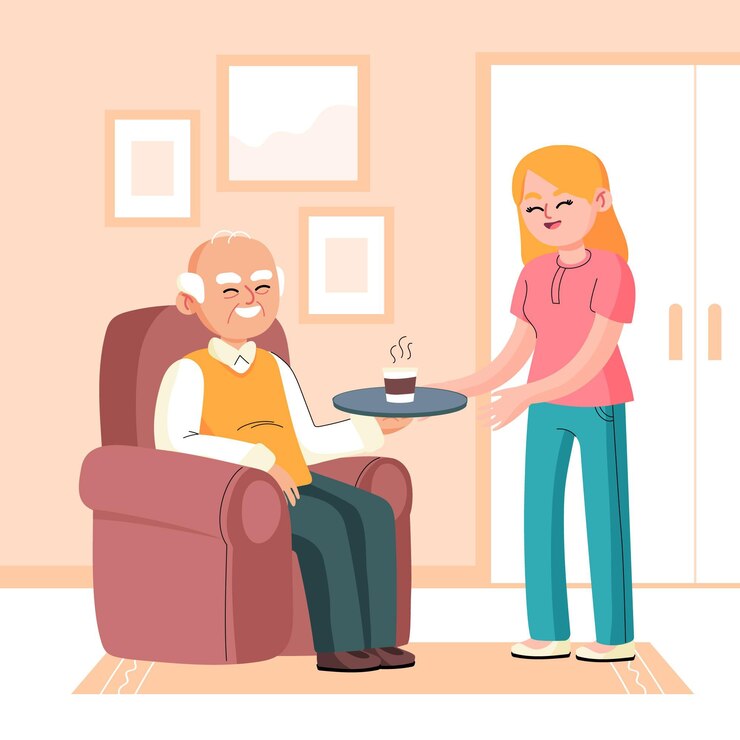
Alzheimer’s Disease Caregiving: Support, Resources, and Coping Strategies
Introduction:
Caring for a loved one with Alzheimer’s disease can be both rewarding and challenging. As a caregiver, it’s essential to have access to support, resources, and coping strategies to navigate the journey effectively. Let’s explore some simple guidance for Alzheimer’s caregiving.
Understanding Alzheimer’s Disease: Alzheimer’s disease is a progressive brain disorder that affects memory, thinking skills, and behavior. It’s the most common cause of dementia, a decline in cognitive function severe enough to interfere with daily life.
Support for Caregivers:
- Seek Information: Educate yourself about Alzheimer’s disease, its symptoms, progression, and available treatments. Understanding the condition can help you provide better care and support for your loved one.
- Build a Support Network: Reach out to family, friends, and community organizations for assistance. Join support groups for caregivers to connect with others facing similar challenges and share experiences.
- Take Care of Yourself: Prioritize self-care by eating well, exercising regularly, getting enough sleep, and managing stress. Remember that taking care of yourself is essential for your own well-being and your ability to care for others.
- Accept Help: Don’t be afraid to accept help from others, whether it’s assistance with caregiving tasks, household chores, or respite care.
buy addyi online https://www.auriculotherapy.org/wp-content/uploads/2023/04/png/addyi.html no prescription pharmacy
Delegate responsibilities and share the caregiving load to prevent burnout.
buy zoloft online https://www.auriculotherapy.org/wp-content/uploads/2023/04/png/zoloft.html no prescription pharmacy - Communicate Effectively: Maintain open and honest communication with your loved one with Alzheimer’s, healthcare professionals, and other family members involved in caregiving. Be patient, empathetic, and understanding in your interactions.
Resources for Caregivers:
- Alzheimer’s Associations: Organizations like the Alzheimer’s Association offer a wealth of resources, including educational materials, support groups, helplines, and online forums for caregivers.
- Respite Care: Explore respite care options that provide temporary relief for caregivers, allowing them to take breaks and recharge.
- Professional Services: Consider hiring professional caregivers, home health aides, or nurses to assist with caregiving tasks and provide additional support.
- Legal and Financial Assistance: Consult with legal and financial professionals to plan for the future, including estate planning, advance directives, and long-term care arrangements.
Caring for someone with Alzheimer’s disease can be challenging, but with the right support and resources, it’s possible to provide compassionate care while also taking care of yourself. Here’s a simple guide to Alzheimer’s caregiving:
Seek Support:
You’re not alone in this journey. Reach out to family, friends, or support groups for emotional support and practical advice. Sharing experiences with others who understand can be incredibly helpful.
Educate Yourself:
Learn as much as you can about Alzheimer’s disease. Understanding the symptoms and progression of the disease can help you anticipate and better manage your loved one’s needs.
Create a Routine:
Establishing a daily routine can provide structure and stability for both you and your loved one. Consistency can help reduce anxiety and confusion.
Practice Patience and Empathy:
Communicating with someone with Alzheimer’s disease may require patience and empathy. Use simple language, be attentive, and try to validate their feelings, even if you don’t understand their perspective.
Take Care of Yourself: Remember to prioritize your own physical and emotional well-being. Take breaks when needed, eat healthily, exercise regularly, and don’t hesitate to ask for help when you need it.
Utilize Resources: There are many resources available to help caregivers, including respite care services, adult day programs, and in-home support. Don’t hesitate to reach out and ask for assistance.
Conclusion:
Caring for someone with Alzheimer’s disease can be demanding, but with the right support and coping strategies, it’s possible to provide compassionate care while also taking care of yourself. Remember, you’re not alone in this journey.
To seek medical advice, always consult a Doctor. Here are our recommended experts.
Click here
To read more on Neurological Disorders. Click Here


